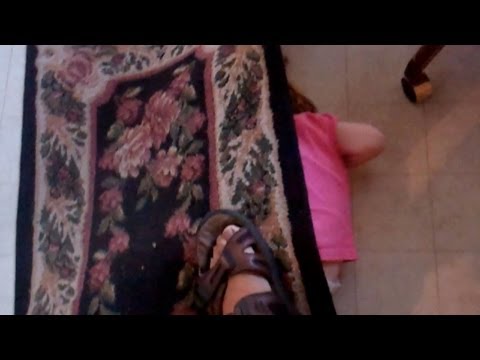Apparently, a democracy is a place where numerous elections are held
at great cost without issues and with interchangeable candidates.
Gore Vidal
 |
About 10 days ago, my daughter
spent a day in Jerusalem with some
cousins from abroad. She told me that she embarrassed herself in front of them.
When an ambulance passed, with sirens blaring, close to where they were
walking, my daughter, like all good southern Israelis, visibly jumped. Her
cousins didn’t know what was wrong with her. “It’s only an ambulance,” they
said, “why are you so afraid?”
Jumping at sudden noises is a
southern reality. I know very few people here who don’t jump when a motorcycle
whizzes by, or when brakes screech in the distance, or when strange music is
heard on the radio.
A month after Pillar of Defense,
there are still an awful lot of kids having trouble sleeping at night, wetting
their beds, or missing school. There are still adults who, upon entering any
building, first check out the whereabouts of the safe room; people who don’t like
to leave the safety of their houses; people whose anxiety has become a part of
their fabric.
For most of the country, the
missiles are but a faint memory. “But nothing happened in the end, Iron Dome
shot down all the missiles,” is the usual statement. This means, of course,
that civilian fatalities were very low, few people were physically hurt, and
the army, after all, didn’t enter Gaza .
Thank heaven for all that.
But it’s far from true that
‘nothing happened.’ 1500 missiles were shot into Israel
in eight days. That’s something, even for Israel .
[An average of 100 missiles a day were shot into Israel
during the 2006 Lebanon War (considered a botched war on the part of Israel ,
and that eventually brought down the government), while an average of almost
200 missiles a day were launched during the week of Pillar of Defense.]
Nowhere does this laissez faire
attitude seem to be truer than in the political arena. Israeli elections are
only a few weeks away, but unless I’m missing something, there doesn’t seem to
be much talk about a solution, or at least a treatment for the South. As a
matter of fact, there doesn’t seem to be much talking about solutions for
anything at all.
Politicians are seen drinking
beer with students, putting a note into the Kotel, or buying tomatoes in the
local shuk, but there doesn't seem to be much actual talking to
voters. There’s a lot of conjecturing in
the press – did he say this? Did he really mean that? – and a lot of
mud-slinging amongst the politicians themselves – this one will bring us to
war, and that one will bring the economy to its knees – but there doesn’t
seem to be much discussion.
The Americans and Canadians in
Israel (AACI) along with the Jerusalem Post have arranged various panel
discussions featuring English speaking representatives in various cities around
the country. The purpose of the evenings was to present the platforms of the
leading parties (reps from about 9 or 10 parties were invited) in English, so
that new immigrants, who often have a difficult time following the spit-fire
Hebrew on the news, can make an intelligent choice when they vote. The cities
included Tel Aviv, Jerusalem ,
Netanya, Beer Sheva, and Haifa .
 |
| Just some of the parties who are running for election |
Here in Beer Sheva, we found a
place to have the talks – a beautiful old building from the British Mandate,
which today is the Artist’s House, hosting hundreds of works of art created by Negev
artists.
However, a week ago, we
discovered that the event had to be canceled, both here in the south, and in Haifa
in the north.
Apparently, Beer Sheva and Haifa
were ‘too far’ to travel to. (Tel Aviv is 55 minutes by train from
Beer Sheva. However, Tel Aviv to Beer Sheva is apparently several
days on a camel, at least in the mind of our politicians….)
Reps from only two parties were
prepared to attempt the journey south and north. HaBayit HaYehudi and Yesh Atid
seem to recognize that Israel
is more than the center. Avishay Braverman, a Labor MP and ex-Beer Shevaite (he
was the President of Ben-Gurion University), also volunteered to come down to
speak with us, when he was approached personally. But it wasn't enough for the
event to take place.
Politicians, it appears, are
prepared to do just about everything to get elected, except speak to the
voters. I suppose they are afraid to face people here, seeing how nobody has
any answers for any of the issues facing the south; higher unemployment,
inferior medical care, lower education standards, and of course security
issues.
And so we have been, as we have
for so many years, swept under the rug.
That rug is getting awfully lumpy.
 |
| A lumpy rug? or taking cover from Grad missiles. |
2 comments:
Reesa, we Southerns are treated as second class citizens by our country's politicians and apparently our vote isn't important.
This is why after 13 years, Kassamin and Grads are still being fired into Israel.
Kol HaKavod to the two parties willing to make that 'long trip' to Beer Sheva....Could it be that the others are afraid of a kassam attack?
Miriam
A good blogpost, Reesa! I will post it.
Post a Comment